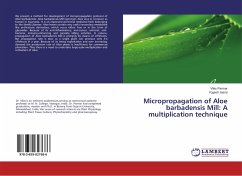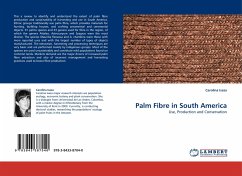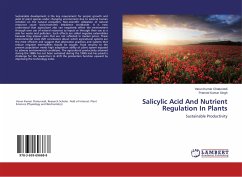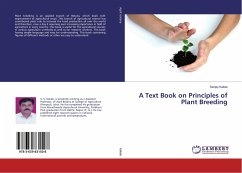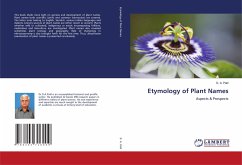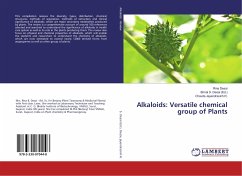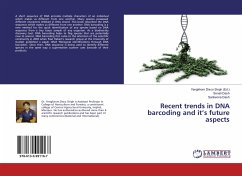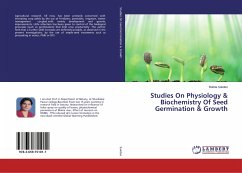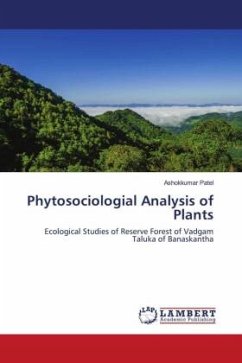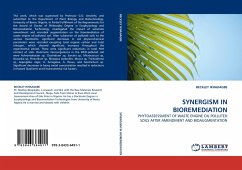
SYNERGISM IN BIOREMEDIATION
PHYTOASSESSMENT OF WASTE ENGINE OIL POLLUTED SOILS AFTER AMENDMENT AND BIOAUGMENTATION
Versandkostenfrei!
Versandfertig in 6-10 Tagen
52,99 €
inkl. MwSt.

PAYBACK Punkte
26 °P sammeln!
This work, which was supervised by Professor G.O. Anoliefo, and submitted to the Department of Plant Biology and Biotechnology, University of Benin, Nigeria, in Partial Fulfillment of the Requirements for the Award of Doctor of Philosophy Degree in Ecophysiology and Bioremediation Technology, investigated the impact of substrate amendment and microbial augmentation on the bioremediation of waste engine oil-polluted soil. After subjection of polluted soils to the various treatments, significant decreases in soil physicochemical parameters were recorded excepting total organic carbon and total n...
This work, which was supervised by Professor G.O. Anoliefo, and submitted to the Department of Plant Biology and Biotechnology, University of Benin, Nigeria, in Partial Fulfillment of the Requirements for the Award of Doctor of Philosophy Degree in Ecophysiology and Bioremediation Technology, investigated the impact of substrate amendment and microbial augmentation on the bioremediation of waste engine oil-polluted soil. After subjection of polluted soils to the various treatments, significant decreases in soil physicochemical parameters were recorded excepting total organic carbon and total nitrogen, which showed significant increases throughout the experimental period. There were significant reductions in total PAH content of soils. Dominant microorganisms in the WEO-polluted soil were Achromobacter sp, Clostridium sp, Sarcina sp, Micrococcus sp, Nocardia sp, Penicillium sp, Rhizopus stolonifer, Mucor sp, Trichoderma sp, Aspergillus niger, A. fumigatus, A. flavus, and Geotrichum sp. Significant decreases in heavy metal concentration resulted in reductions in Hazard Quotients and Environmental risk factors.




